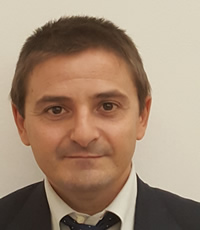Studying at the University of Verona
Here you can find information on the organisational aspects of the Programme, lecture timetables, learning activities and useful contact details for your time at the University, from enrolment to graduation.
Academic calendar
The academic calendar shows the deadlines and scheduled events that are relevant to students, teaching and technical-administrative staff of the University. Public holidays and University closures are also indicated. The academic year normally begins on 1 October each year and ends on 30 September of the following year.
Course calendar
The Academic Calendar sets out the degree programme lecture and exam timetables, as well as the relevant university closure dates..
| Period | From | To |
|---|---|---|
| Periodo generico | Oct 1, 2022 | May 31, 2023 |
| Primo semestre (lauree magistrali) | Oct 3, 2022 | Dec 23, 2022 |
| Secondo semestre (lauree magistrali) | Feb 20, 2023 | May 19, 2023 |
| Session | From | To |
|---|---|---|
| Sessione invernale (lauree magistrali) | Jan 9, 2023 | Feb 17, 2023 |
| Sessione estiva (lauree magistrali) | May 22, 2023 | Jul 7, 2023 |
| Sessione autunnale (lauree magistrali) | Aug 28, 2023 | Sep 22, 2023 |
| Session | From | To |
|---|---|---|
| Sessione autunnale | Dec 5, 2022 | Dec 7, 2022 |
| Sessione straordinaria riservata MS e MCI | Feb 24, 2023 | Feb 24, 2023 |
| Sessione invernale | Apr 4, 2023 | Apr 6, 2023 |
| Sessione estiva | Sep 5, 2023 | Sep 7, 2023 |
Exam calendar
Exam dates and rounds are managed by the relevant Economics Teaching and Student Services Unit.
To view all the exam sessions available, please use the Exam dashboard on ESSE3.
If you forgot your login details or have problems logging in, please contact the relevant IT HelpDesk, or check the login details recovery web page.
Should you have any doubts or questions, please check the Enrollment FAQs
Academic staff
 massimo.melchiori@univr.it
massimo.melchiori@univr.it

Peluso Eugenio
 eugenio.peluso@univr.it
eugenio.peluso@univr.it
 045 8028104
045 8028104
 giovanni.sandrini@univr.it
giovanni.sandrini@univr.it
Study Plan
The Study Plan includes all modules, teaching and learning activities that each student will need to undertake during their time at the University.
Please select your Study Plan based on your enrollment year.
1° Year
| Modules | Credits | TAF | SSD |
|---|
2° Year activated in the A.Y. 2023/2024
| Modules | Credits | TAF | SSD |
|---|
| Modules | Credits | TAF | SSD |
|---|
| Modules | Credits | TAF | SSD |
|---|
| Modules | Credits | TAF | SSD |
|---|
Legend | Type of training activity (TTA)
TAF (Type of Educational Activity) All courses and activities are classified into different types of educational activities, indicated by a letter.
Group governance and reporting (2022/2023)
Teaching code
4S008086
Academic staff
Coordinator
Credits
9
Language
Italian
Scientific Disciplinary Sector (SSD)
SECS-P/07 - BUSINESS ADMINISTRATION AND ACCOUNTING STUDIES
Period
Secondo semestre (lauree magistrali) dal Feb 20, 2023 al May 19, 2023.
Learning objectives
The general purpose of this course is to develop students’ understanding and capabilities on the subject of business groups as a form of business combination designed to achieve strategic and operating objectives. In particular, at the end of the course, students will get knowledge and understanding of: - The features, purposes, processes and conditions of group creation, as well as the group structure and mechanisms of group governance (governance); - The principles for preparing the consolidated financial statement, i.e. to for representing equity and net income at the group level (reporting); - The logic that guides the assessment of financial performance at the group level, relying on the knowledge of group structures and consolidation accounting previously gained (governance and reporting). At the end of the course, students will be able to: - Interpret the strategic and operating implications of groups’ structure and governance mechanisms; - Apply the methodologies and techniques of consolidation accounting; - Apply the methodologies and techniques for analyzing the financial performance at the group level.
Prerequisites and basic notions
There are no prerequisites. However, students are invited to have (at least) basic knowledge of the main business transactions, their accounting recognition and their effects on the equity, income and cash flows; the purpose and content of the financial statement. Those who do not have this knowledge are invited to ask the lecturer for information on introductory readings.
Program
The course program is structured into three parts:
1. Genesis, structure and governance of groups of companies.
1.1. The creation of groups: Purposes and processes – 1.2. Determinants of groups creation – 1.3. Groups classifications – 1.4. Governance structure in groups: The relationship between ownership and direction, and the role of minorities – 1.5. Conflict of interest within groups – 1.6. The transfer price mechanism – 1.7. Firm and group direction.
2. Theory and technique of consolidated financial statement
2.1. Introduction to the consolidated financial statement – 2.2. Integration logic and consolidation methods – 2.3. Regulation: The consolidated financial statement in Italy – 2.4. Scope of consolidation – 2.5. The consolidation process: 2.5.1. Preliminay adjustments – 2.5.2 Genesis and accounting treatment of the consolidation difference – 2.5.3. The adjustment of intragroup transactions – 2.5.4. Non-controlling interests – 2.5.5 Accounting treatment for unconsolidated participations - 2.6 Consolidated financial statement according to the International Financial Reporting Standards (Ias/Ifrs)
3. Analysis and assessment of the group’s performance
3.1. The group informative system – 3.2. Information content of consolidated financial statement and performance analysis at the group level – 3.3. Segment reporting – 3.4. The reconciliation statement – 3.5. Economic equilibrium at the group level – 3.6 Financial equilibrium at the group level: – 3.6.1. Share leverage – 3.6.2 Financial leverage – 3.7. Overall judgement on the group’s performance.
Teaching materials
The content of the textbook, of the lessons and the exercises carried out during the course is consistent with the programme. Both the programme and the studying materials are the same for students who attend and students who do not attend the course. Teaching slides, further readings and accounting standards will be available on the e-learning platform (teaching Dashboard).
Readings
A. Zattoni, Corporate governance, Egea, Milano, 2015 (cap. 1-2-6 e par. 7.1-7.2-7.3)
U. Sòstero, F. Cerbioni, C. Saccon, Bilancio consolidato: disciplina nazionale e IFRS, 2^ Edizione, McGraw-Hill Education, Milano, 2018 (cap. 1-3-4-7-9 e par. 2.2-2.3-6.3-8.1-8.2-8.3)
A. Lai., Le situazioni di equilibrio economico-finanziario di gruppo, 2^ Edizione, Franco Angeli, Milano, 2003 (cap. 1-3-4-5-6)
Bibliography
Didactic methods
In order to encourage students’ learning ability, the course adopts an integrated approach that combines theoretical lessons, practical applications, discussion of case studies and analysis of a consolidated financial statement. The course includes also some seminars with representatives of groups of companies.
Learning assessment procedures
The exam consists in an individual written test on the whole program and aims to verify the theoretical and practical knowledge acquired. It includes three questions: one exercise on consolidation accounting and two semi-open questions that might be theoretical and/or practical. The exam lasts 1 hour and 30 minutes and evaluated in thirties.
A team-work provides students with maximum 3 points. The analysis of the structure, governance, and performance of a group of companies is required. The team-work aims at assessing the capability acquired in performing and discussing a meaningful group analysis, both at a technical and an interpretive level. Furthermore, the capabilities will be assessed, both individually and collectively, in making judgments on the group performance, in communicating with the group members and in written and oral communications.
Students who cannot take part in the team-work will be assessed through the written test only.
Evaluation criteria
The questions are structured in such a way as to verify the level of knowledge of the different parts of the program. Evaluation tends to ascertain this level of knowledge and the ability to apply this knowledge to practical situations.
Criteria for the composition of the final grade
Each question is marked in thirties. The final grade is computed as the average of the marks obtained in the three questions. However, the student must answer at least sufficiently each one of the three questions.
For the team-work, a maximum of 3 points are assigned, which are added to the mark obtained in the written test, provided that the latter is passed.
Exam language
Italiano
Type D and Type F activities
SOFT SKILLS
Find out more about the Soft Skills courses for Univr students provided by the University's Teaching and Learning Centre: https://talc.univr.it/it/competenze-trasversali
CONTAMINATION LAB
The Contamination Lab Verona (CLab Verona) is an experiential course with modules on innovation and enterprise culture that offers the opportunity to work in teams with students from all areas to solve challenges set by companies and organisations.
Upon completion of a CLab, students will be entitled to receive 6 CFU (D- or F-type credits).
Find out more: https://www.univr.it/clabverona
PLEASE NOTE: In order to be admitted to any teaching activities, including those of your choice, you must be enrolled in the academic year in which the activities in question are offered. Students who are about to graduate in the December and April sessions are therefore advised NOT to undertake extracurricular activities in the new academic year in which they are not enrolled, as these graduation sessions are valid for students enrolled in the previous academic year. Therefore, students who undertake an activity in an academic year in which they are not enrolled will not be granted CFU credits.
| years | Modules | TAF | Teacher |
|---|---|---|---|
| 1° 2° | Ciclo tematico di conferenze: “Conflitti. Riconoscere, prevenire, gestire” - 2022/2023 | D |
Riccardo Stacchezzini
(Coordinator)
|
| 1° 2° | Securitisation transactions - Focus on securitisations of OF NPL / NPE /UTP | D |
Michele De Mari
(Coordinator)
|
| 1° 2° | Soft Skills Coaching Days - 2022/2023 | D |
Paola Signori
(Coordinator)
|
| 1° 2° | The Fashion Lab - 2022/23 | D |
Caterina Fratea
(Coordinator)
|
| years | Modules | TAF | Teacher |
|---|---|---|---|
| 1° 2° | Economic Thinking and Thesis Writing | D |
Marco Minozzo
(Coordinator)
|
| 1° 2° | Job club | D |
Paola Signori
(Coordinator)
|
| 1° 2° | Data Analysis Laboratory with R (Vicenza) | D |
Marco Minozzo
(Coordinator)
|
| 1° 2° | Data Visualization Laboratory | D |
Marco Minozzo
(Coordinator)
|
| 1° 2° | Python Laboratory | D |
Marco Minozzo
(Coordinator)
|
| 1° 2° | Data Science Laboratory with SAP | D |
Marco Minozzo
(Coordinator)
|
| 1° 2° | Advanced Excel Laboratory (Vicenza) | D |
Marco Minozzo
(Coordinator)
|
| 1° 2° | Excel Laboratory (Vicenza) | D |
Marco Minozzo
(Coordinator)
|
| 1° 2° | Laboratory on research methods for business | D |
Cristina Florio
(Coordinator)
|
| 1° 2° | Laboratory on research methods for business | D |
Cristina Florio
(Coordinator)
|
| 1° 2° | Piano di marketing 2022/23 | D |
Fabio Cassia
(Coordinator)
|
| 1° 2° | Programming in Mathlab | D |
Marco Minozzo
(Coordinator)
|
| 1° 2° | Programming in SAS | D |
Marco Minozzo
(Coordinator)
|
| years | Modules | TAF | Teacher |
|---|---|---|---|
| 1° 2° | Business & predictive analytics for International Firms (with Excel Applications) - 2022/23 | D |
Angelo Zago
(Coordinator)
|
| 1° 2° | Multinational companies and their foreign direct investment - 2022/2023 | D |
Riccardo Fiorentini
(Coordinator)
|
| 1° 2° | Soft skills training for economics - 2022/23 | D |
Claudio Zoli
(Coordinator)
|
| 1° 2° | Topics in applied economics and finance - 2022/23 | D |
Claudio Zoli
(Coordinator)
|
| 1° 2° | Experience 3 Days as a Manager | D |
Riccardo Stacchezzini
(Coordinator)
|
| years | Modules | TAF | Teacher |
|---|---|---|---|
| 1° 2° | The Chartered Accountant as a business consultant | D |
Riccardo Stacchezzini
(Coordinator)
|
| 1° 2° | Integrated Financial Planning 2022/2023 | D |
Riccardo Stacchezzini
(Coordinator)
|
| years | Modules | TAF | Teacher |
|---|---|---|---|
| 1° 2° | Project "B-EDUCATION: ideas that count" - 1 cfu | D |
Roberto Bottiglia
(Coordinator)
|
| 1° 2° | Project "B-EDUCATION: ideas that count" - 2 cfu | D |
Roberto Bottiglia
(Coordinator)
|
Career prospects
Module/Programme news
News for students
There you will find information, resources and services useful during your time at the University (Student’s exam record, your study plan on ESSE3, Distance Learning courses, university email account, office forms, administrative procedures, etc.). You can log into MyUnivr with your GIA login details: only in this way will you be able to receive notification of all the notices from your teachers and your secretariat via email and soon also via the Univr app.


























